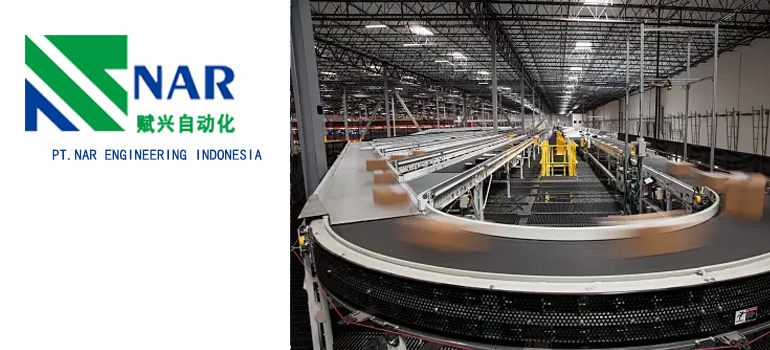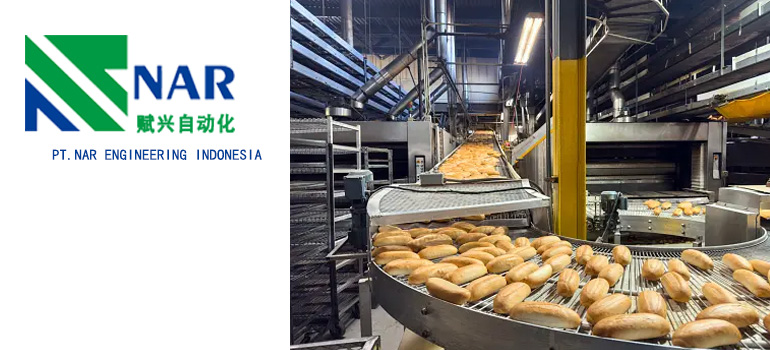Summary:
The Evolution of Industrial Conveyors: Types and Applications
The definition and basic principles of industrial conveyors
The main types of industrial conveyors
The application of industrial conveyors in different industries
The Future Development Trends of Industrial Conveyors
In today’s advanced manufacturing and logistics fields, industrial conveyors are seen as indispensable tools for improving production efficiency and material handling efficiency. This article will comprehensively explore the definition, types, application fields, and key roles of industrial conveyors in modern industry, revealing their role as a support system for efficient material handling.
The definition and basic principles of industrial conveyors

Industrial conveyor is an automated equipment used to transport materials from one location to another during the production process. Its basic principles include conveyor belts, drums, motors, and transmission devices, which can meet various material processing needs through different configurations and combinations.
Industrial conveyor is not only a simple mechanical equipment, but also a core component of the production process. By transferring materials from one workstation to another, industrial conveyors greatly improve the efficiency of production lines and achieve production automation.
The main types of industrial conveyors
Belt conveyors: Based on conveyor belts, suitable for conveying large and continuous materials. The selection of material, strength, and width of conveyor belts affects the carrying capacity and service life of the conveyor. Meanwhile, modern belt conveyors can also integrate sensors and automatic control systems to achieve intelligent operation.
Roller Conveyors: Using drums to push materials, suitable for short distance transportation of heavy materials. The type and layout of the drum have a significant impact on the stability and durability of the conveyor. Moreover, drum conveyors can adapt to materials of different sizes and shapes by adjusting the height and spacing of the drums.
Chain conveyors: use chains to transfer materials, suitable for heavy and sturdy materials. The selection of the shape and spacing of the chain plate is related to the operational stability of the conveyor. Some advanced chain plate conveyors are also equipped with automatic lubrication systems, which extend the service life of the chains.
Screw Conveyors: Utilizing spiral transmission components, suitable for powder or granular materials. The design of the pitch, diameter, and speed of a screw conveyor has a direct impact on the conveying efficiency of materials. Some screw conveyors used in special environments also use corrosion-resistant materials to ensure long-term reliable operation.
The application of industrial conveyors in different industries
Manufacturing: To achieve smooth material transfer on production lines and improve production efficiency. By integrating automated control systems, manufacturing can achieve refined management of production processes, reduce human intervention, and improve the stability and consistency of production lines.
Logistics and warehousing: used for loading, unloading, sorting, and transportation of goods. The logistics industry places greater emphasis on flexibility and adaptability in conveyor requirements. Some advanced logistics transportation systems can adjust the transportation route in real-time according to changes in orders, improving the processing efficiency of materials in the warehouse.
Mining and construction: Large scale material handling to improve construction site efficiency. In the mining and construction industries, conveyors not only need to have strong load-bearing capacity, but also need to have characteristics of corrosion resistance and wear resistance. The application of some high-strength alloy materials enables the conveyor to operate stably in harsh environments.
Food and Beverage: Safe and hygienic transportation of food raw materials and finished products. The food industry places greater emphasis on hygiene and safety in conveyor requirements. The material of the conveyor belt needs to meet food grade standards, and the design of the conveyor should minimize material pollution and cross contamination as much as possible.
The Future Development Trends of Industrial Conveyors
With the continuous development of technology, industrial conveyors will move towards a more intelligent and energy-saving direction. The application of sensor technology will enable the conveyor to achieve real-time monitoring and remote control, improving the reliability and safety of operation. Meanwhile, the application of new materials and manufacturing technologies will improve the durability and performance of conveyors, enabling them to better adapt to various industrial environments and requirements.
As a key component of modern production processes, industrial conveyors significantly improve production efficiency and reduce labor costs through automated and efficient material handling. Different types of conveyors play a crucial role in different industries, promoting smoother production processes.
In the future, with the continuous progress of technology, industrial conveyors will continue to evolve, adapt to the needs of more industries, and become an indispensable technical support in the production and logistics fields. By gaining a deep understanding of the principles, types, and applications of industrial conveyors, manufacturers and enterprises can better choose conveying systems that meet their needs, thereby improving production efficiency, reducing costs, and laying a solid foundation for the sustainable development of enterprises.
Maybe you are interested in the following: Improving Efficiency: The Ultimate Guide to Conveyor Guideways

